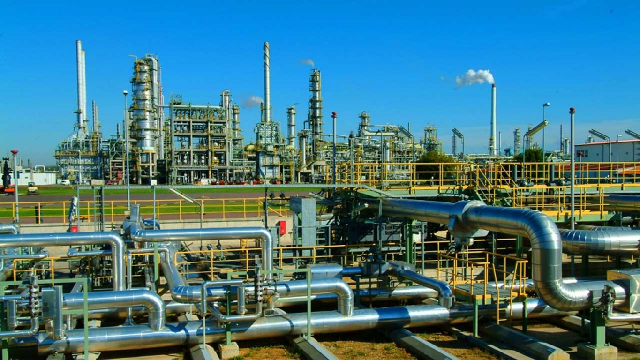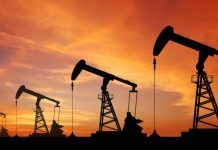The world’s richest black man, and serial industrialist, Alhaji Aliko
Dangote, has embarked on probably one of the most audacious industrial
projects ever to be undertaken by a private individual anywhere in the
world – The Dangote Petro-Chemical Refinery Complex, located at the
Lekki Free Trade Zone in Lagos, Nigeria.
We bring you 20 amazing facts about the project, so you can judge for
yourself, the profundity of the vision and courage driving this incredible
undertaking, and how it will change the face of the Nigerian Oil & Gas
sector forever. Plus, what he plans to do when he’s done building his
refinery:
#1. It is the largest industrial complex in Africa
#2. It is the largest single train grass roots refinery in the world, with a processing
capacity of 650,000 barrels of crude oil per day
#3. It is located in Lagos, the commercial capital of Nigeria
#4. The project site is larger than Victoria Island in Lagos. It is sitting on 2,135
hectares of Land in Epe, Lagos, near the Lekki Free Trade Zone
#5. Work proceeds on the site, 24 hours a day, 7 days a week
#6. Over $4 billion worth of equipment currently sits on the site. And because
there’s not enough gas in the whole country to weld everything together, he’s
building his own industrial gas plant
#7. During the construction phase, the project will employ over 25,000 Nigerians
#8. Dangote Group’s refinery projects will provide 235,000 direct and indirect jobs
on completion, including those to be generated by a joint venture with the
Chinese to produce trucks locally for the distribution of the refinery’s products
#9. The project is slated to cost $14 billion (2.8 trillion) of which Dangote is
contributing half ($7 billion) in equity
#10. World Record 2.72 million accident-free hours so far recorded on site, without
a single lost time to injuries
#11. Dangote Group brought in the world’s #1, #2 and #5 sand dredgers to sand
fill the site. 60% of the land was originally swampy. So far these dredgers
have reclaimed 13 million cubic metres out of the 30 million cubic metres
available
#12. When this project comes on line, Nigeria will save a minimum of $10 billion a
year on the importation of finished petroleum products
#13. The Ammonia component of the plant will produce 2.8 million tones of Urea
annually
#14. The Dangote Group is producing its own electricity to power the plant and by
so doing is saving 75% cost. The refinery will require about 480MW daily,
about a tenth of what the whole country currently produces. (And by the way,
Dangote produces electricity at a rate that is significantly cheaper than that
of the Federal Government. Dangote’s cost is $400,000/MW, while the
Federal Government’s is $2,000,000/MW).
#15. All the civil engineering works are being done by Nigerian companies
#16. The plant has an export value of $6 billion per annum, meaning Dangote’s
efforts will increase the amount of foreign exchange inflow to Nigeria’s
foreign reserves by at least 40% of current value, on a yearly basis
#17. Dangote said that when this project comes on line, his friend, Femi Otedola,
will save at least N26 per litre on the millions of litres of diesel and petrol
which his companies import annually. This savings will be passed on to the
consumers.
#18. Billions of Naira was paid to acquire the land and to settle the surrounding
communities. More money was allocated and spent to relocate the existing
communities.
#19. This project will restore the dignity of Nigeria, a crude oil producing country
that has for years looked overseas to meet its demand for refined products.
#20. Refined products to be produced at the plant include, but are not limited to:
Propane, Petrol, Jet Fuel, Diesel, Kerosene, Carbon Black, Polypropylene,
Polyethylene, etc.
And when he’s done with the refinery project, Dangote has promised
to give himself a personal treat – buy his favourite football club, Arsenal!













